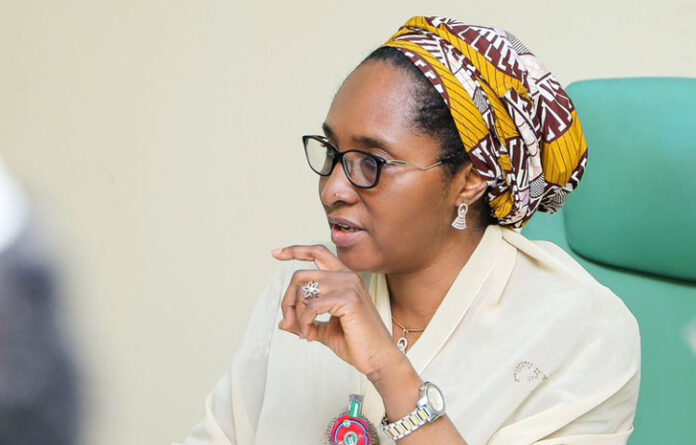The Minister of Finance, Budget and Planning, Hajiya Zainab Ahmed, says the Federal Government will review the number of its agencies to save costs and have more revenue for capital projects.
Ahmed made this known during in interview monitored through the Nigerian Television Authority (NTA).
She, however, assured that such a review would not result to job losses in the public sector.
She said that the country was faced with a revenue challenge and needed to take steps to improve revenue generation and cut wastes.
She, however, explained that the revenue generation was gradually improving due to a number of steps taken by the government.
“The problem we have is that of revenue because we need revenue to improve infrastructure and to service debt.
“Even though the revenue is increasing, it is still not enough, and we cannot wait for revenue to improve before we improve critical infrastructure,” she said.
She said that the 2022 budget was tied to the new National Development Plan, which would make it more impactul.
” In the past we have had good plans but the link between the plans and the budgets were absent.
“We have a budget of N17.13 trillion. 35 per cent is for capital projects, while 65 per cent is recurrent.
” Though the capital projection is an improvement on last year, the budget is still largely recurrent,” she said.
Ahmed said that the 2022 budget was designed to complete ongoing infrastructural projects.
She said that the capital aspect of the budget would be largely financed with borrowings, adding that the Nigerian debt threshold was healthy.
“The revenue projection is N10.5 trillion which leaves a deficit of a deficit of above N6 trillion. It means that we are largely going to fund it with borrowings.
“The borrowing component is 21 per cent, and that is a healthy threshold,” she said.
She said that the 2021 budget recorded 94 per cent implementation as at November, adding that revenue generation in 2021 was N5.51 trillion or 74 per cent of projected revenue.
She added that the Information and Communication Technology (ICT) and the services sectors were the largest contributors to the economy.
“Agriculture also contributed greatly to the economy, despite the challenges of insecurity, Nigerians are still resilient in the agric sector, ” she said.




